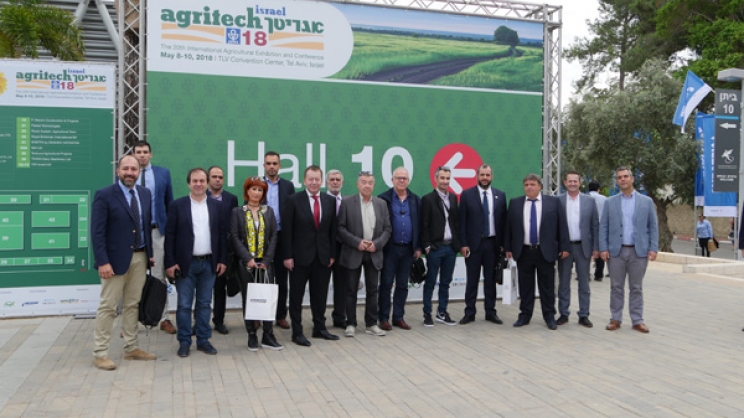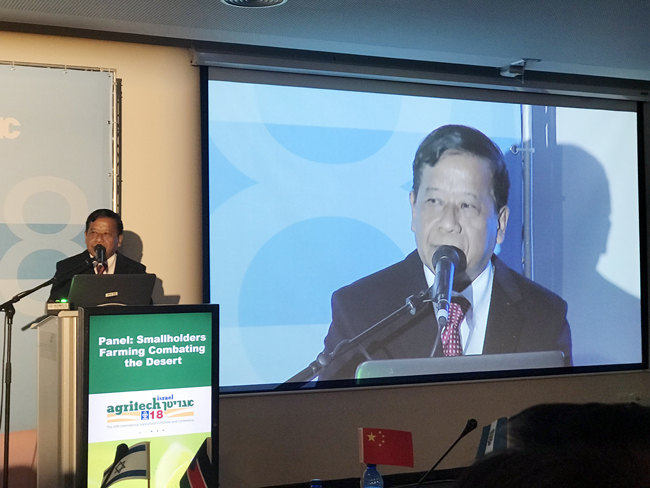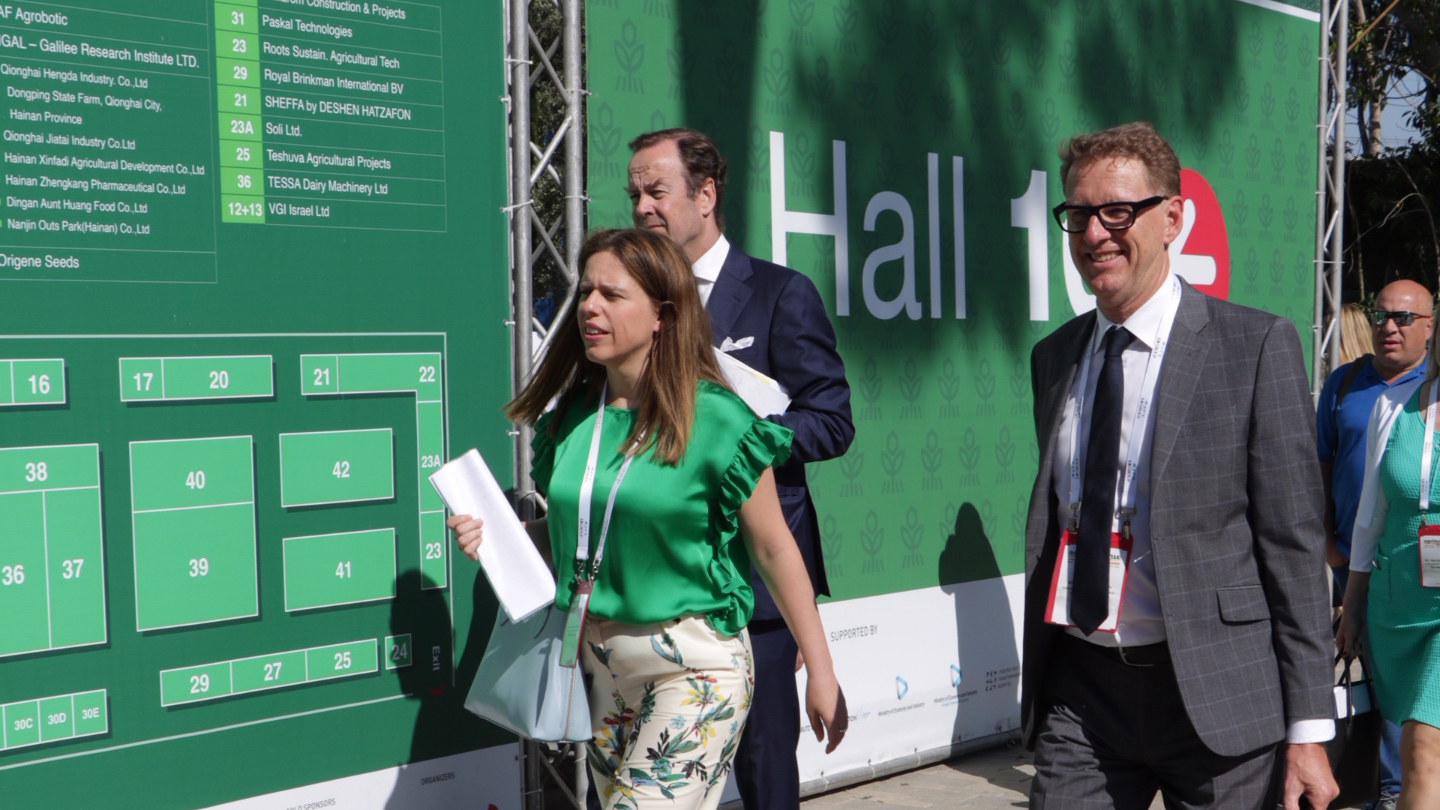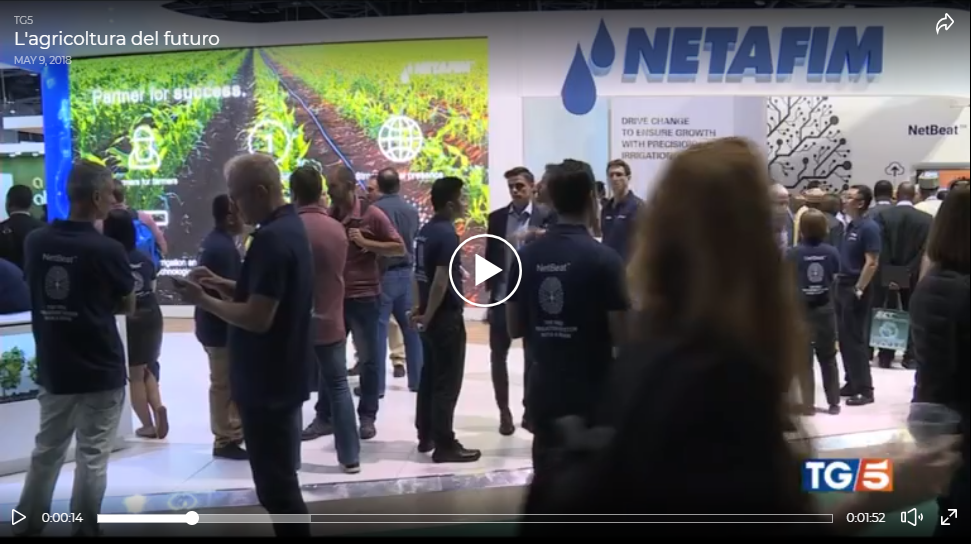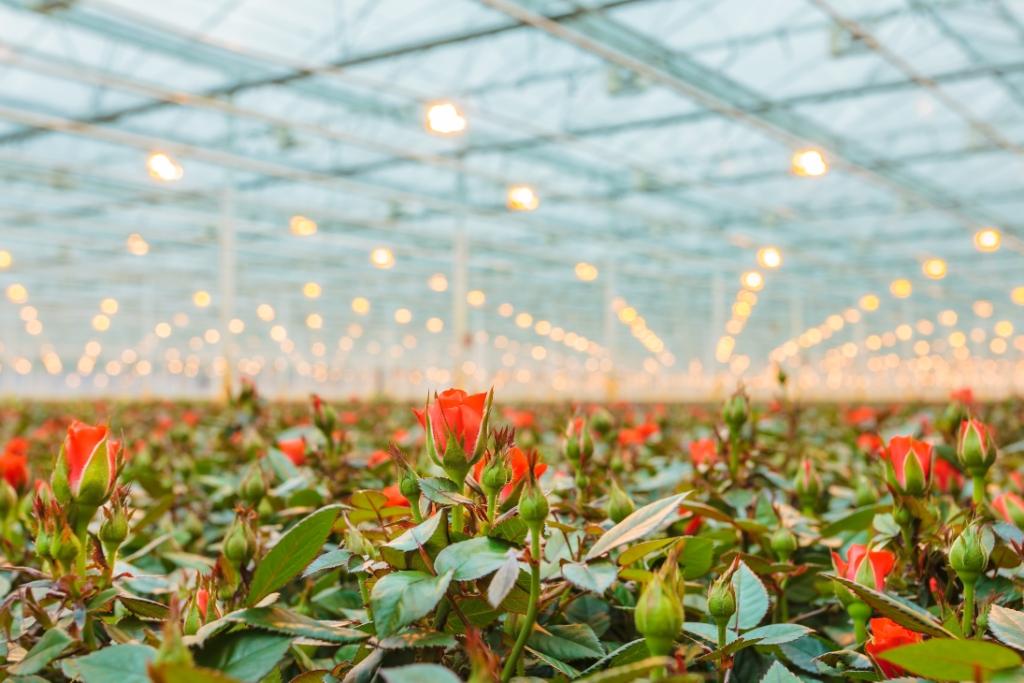
“The arid desert shall be glad, The wilderness shall rejoice And shall blossom like a rose.” Isaiah 35:1 (The Israel Bible™)
In the same way that the Children of Israel were compelled to face the trial of surviving in the desert wilderness for 40 years, Israel’s modern geography forces companies to innovate in order to cultivate Israel’s land. It is this necessity that has led Israel to contribute countless breakthroughs in the agritech (agricultural technology) field.
From May 8 to 10 in Tel Aviv, the 2018 International Agro Technology Exhibition served as a platform that brought together dozens of Ministers of Agriculture, policy makers, and leading agricultural players from around the world.
According to Ofir Libstein, the General Manager of Agritech, it is thanks to the groundbreaking innovation nature of Israeli agriculture that the conference has become one of the most important agricultural professional exhibitions in the world reaching tens of thousands of visitors. With the world’s most developed #irrigation methods, world’s highest reused water rate, and most advanced agriculture technologies on the international market for heating and electricity generation, it was a clear choice to host one of the most important exhibitions in the field of agricultural technologies, said an Agritech press release.
“Global warming, climate change, extreme weather phenomena, water deficiency and desertification all present new challenges that require extensive and profound approaches and durable solutions for efficient farming on the edge of the desert,” said Libstein, who maintained that the conference was “devoted entirely to the challenges related to agriculture on the edge of the desert and its achievements.”
One may wonder how it is that Israel, which is located on the edge of the desert, as Libstein explained, became a major player in supplying the world with cutting-edge agricultural solutions.
The answer lies at the intersection of the Jewish State’s geography, culture and religion.
As Jewish immigrants moved to settle the country’s land, they were challenged by its arid topography, lacking in various natural resources — hardly the best possible conditions for developing agriculture. But out of challenge sprouted advanced solutions in drip irrigation, recycling, and purifying and reuse of wastewater for agricultural purposes.
According to Ori Ben Ner, Chief Marketing Officer of SupPlant, “We had no other choice than to innovate. At its founding, Israel was a desert with very, very, very little amounts of water,” he said, adding, “Every amazing invention comes out of necessity.”
SupPlant is a world-leading Israeli company that has developed a unique artificial intelligence system that is able to analyze data generated from crops through sensors and translate this data into irrigation commands. These commands tell farmers exactly how to irrigate in real time based on global climate shifts, resulting in more crop production with less wasted resources like water.
“I’ve visited farmers in Canada where their farms are naturally sitting on beautiful fresh lakes, whereas Israel needs special technologies to grow crops in places with very little amounts of water. So we developed it,” Ben Ner told Breaking Israel News.
But according to Zvi Porat of Azrom, the leading Israeli company specializing in the design, engineering, and production of greenhouses that suit all crop requirements and climatic conditions, it is more than just topographical challenges that set Israel apart as an innovator. It’s part of Israeli culture, he said, for the Jewish nation to not only innovate out of necessity, but also become a leader in solutions that can help the world.
“Wherever the Jewish nation built on their homeland, the land flourished,” he told Breaking Israel News, adding that from 1948, Israelis used local resources that sustained the growth of the population from 800,000 to 10 times that today.
Not only is Israeli irrigation techniques helping the land bloom, it is doing so efficiently. Without irrigation and greenhouses, there would be far less life-sustaining food production. Ben Ner estimates that without irrigation, there would be 3 to 4 billion fewer people in the world, as many would die from lack of food and water. And without SupPlant’s software and algorithms that provide autonomous scheduling of irrigation, irrigating inaccurately would waste 30% more water.
“That success bleeds out into the world, as we use our power and know-how to bring better yields and crops around the world,” Porat said.
Indeed, both Azrom and SupPlant exports its technology and training worldwide. SupPlant sells its software technology and on-the-ground recommendations to farmers around the world, while Azrom exports its design, engineering and production of greenhouses to more than 45 countries worldwide with a vision of preserving the environment and humankind.
Porat maintained that exporting innovation is a unique value of the Jewish State, as Israel’s neighbors with similar geographical conditions do not innovate at the same level.
“As Jews, we always want to bring the light wherever we are,” he said. “When I wake up in the morning, I not only want to bring my family the best welfare, but I also want to bring good to the world. That’s the core of the Jewish people.”.
The flourishing that Porat explained as culturally Jewish is also Biblically Jewish. Alongside the Israeli spirit of innovation, many Israelis have sustained this desire to settle the land, motivated by the Biblical prophecy that the land would one day go from desolate ruin to gladness and blossoming.
According to Rabbi Yaakov Beasley, as quoted in The Israel Bible, the Bible is well-known for its prophecies of consolation and hope, a redemption of the Jewish people living peacefully in their land. A large part of these messages of hope include messages of the flourishing land.
He related that God’s pledge in Ezekiel 36:8 that the land will again be inhabited by the house of Israel, that it will flourish, and the mountains will grow trees and produce fruits for the Jewish people, is coming true before our eyes.
“But you, O mountains of Yisrael, shall yield your produce and bear your fruit for My people Yisrael, for their return is near.” (Ezekiel 36:8)
“Since the Jewish people have returned to Israel, the land has indeed begun to flourish, and there are once again trees growing throughout the land,” Beasley said, pointing to the fact that over a quarter of a billion trees have been planted in Israel since 1901, making Israel the only country in the world with a net gain of trees in the 20th century, while the rest of the world struggles with deforestation.
“These images remain an integral part of Israel’s consciousness until today,” he concluded, illuminating the great success of Israeli agritech companies exhibited at Agritech 2018.


